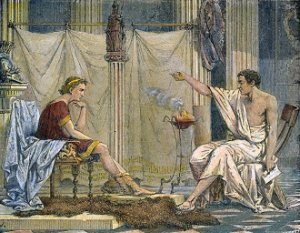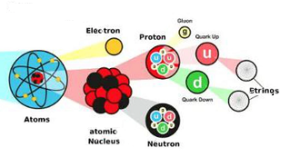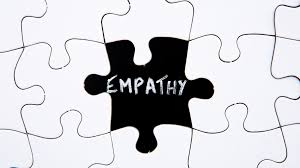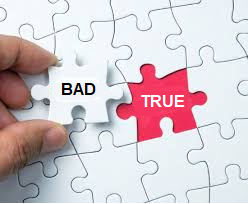
What is the Good?
This is the question that Aristotle begins to develop in his ethics (The Nicomachean Ethics): “It is generally admitted that every art and every investigation, as well as every action and every choice, have some good in view; and for this reason it has been said, with great accuracy, that the good is that to which all things tend” Aristotle (1991, p. 2).
to develop in his ethics (The Nicomachean Ethics): “It is generally admitted that every art and every investigation, as well as every action and every choice, have some good in view; and for this reason it has been said, with great accuracy, that the good is that to which all things tend” Aristotle (1991, p. 2).
Plato’s idea of the Highest Good, which is closer to an idea of the divinity of the “World of Ideas” (he divided the world into the sensible world and the world of ideas) and Aristotle’s idea of the Good, as the idea of a choice in both art and research, presuppose that this was the choice for the social and political life of the Greek polis, which would lead to the balance of politics.
This was in contrast to the world of the sophists, where all logic and choice was for power and the possession of earthly goods, so Aristotle indicates that when he talks about ethics, he is talking about human ethics.
The author reminds us that both he and Plato established themselves on principles and were not subject to mere rhetoric and the justifications of power: “Plato had raised this question, asking, as he used to do: ‘Does our path start from first principles or does it lead towards them?’ (Aristotle, 1991, p. 5).
It is this loss of principles, and the relativism that results from it, that causes contemporary thought to lose its way about what the Good is and even what happiness is. Both Plato and Aristotle don’t lose sight of it, but they know that happiness depends on life in the polis.
Thomas Aquinas in the early Middle Ages did not define the good, but he knew that it also started from principles or what he called “primary notions”, he says: “since the good moves desire, we describe it in this way as everything that desires” and as such it can approach the good or distance itself from it.
When we see the good in this way, we can use an Aristotelian and Thomist category of seeing the good as a final cause, as a perfection to be attained.
Love for our brothers and sisters, universal brotherhood, is not a “theory”, but an end to be achieved.
*In Aristotle, causes are: material: what makes up the object or being, formal: the physical and conceptual form of the object or being, efficient cause: what makes the object or being, and final cause: what the object or being is for.
Aristotle. Ética a Nicomaco (Nicomachean Ethics). translated by Leonel Vallandro and Gerd Bornheim, Brazil: NOVA CULTURAL 1991 (Coleção os Pensadores).
Middle East and Eastern Europe in tension
After threatening to suspend the truce that began on January 19, Hamas accuses Israel of violating the agreement, this weekend three more hostages of the extremist group were returned in exchange for hundreds of prisoners, the hostages were displayed on a stage in the city of Khan Yunis, in southern Gaza (photo).
began on January 19, Hamas accuses Israel of violating the agreement, this weekend three more hostages of the extremist group were returned in exchange for hundreds of prisoners, the hostages were displayed on a stage in the city of Khan Yunis, in southern Gaza (photo).
The three hostages: Israeli-American Sagui Dekel-Chen, Israeli-Russian Sasha Trupanov and Israeli-Argentinian Yair Horn, had been with Hamas since October 7 last year, the fateful terrorist attack.
The situation is tense because the American government does not accept the Hamas group’s governance in the region and is putting all kinds of pressure on the region to remain neutral.
In Eastern Europe, American policy is to consider that Ukraine will not be able to recover the territories lost in the war and is forcing a peace agreement with new borders, threatening to withdraw any support, but it is not without Russian advances in Europe. At the Arctic Pole, the Russian presence is notable, and forces from Canada, the USA, Denmark and Norway are already moving there.
Europe is not completely abandoning Ukraine, because it knows that Russia may not stop there, and has already threatened the Baltic countries, Moldova and Poland.
Last week, drones hit Chernobyl, and it seems that the drones were sent by Russia, hitting the central protection shield.
This Sunday (02/16) France declared that it would host a summit of European leaders this Monday (17) to discuss the war in the east and the security of Europe and seeks to respond to the unilateral approach of President Trump, who uses the policy of what is not good for the US does not concern him.
In all this spectrum of tensions and threats, there is always a background of hope for peace, for a return to common sense and for allowing peoples to live in peace, being able to cultivate their roots and their culture without xenophobia and wars.
Particles, sounds and language
Matter was studied in smaller and smaller particles, the atoms idealized by Democritus (460-370 BC) in ancient times, but for him they were indivisible, eternal and immutable, but modern science began to see them in smaller and smaller sub-particles.
particles, the atoms idealized by Democritus (460-370 BC) in ancient times, but for him they were indivisible, eternal and immutable, but modern science began to see them in smaller and smaller sub-particles.
Initially protons, electrons and neutrons, in the 1930s Austrian physicist Wolfgang Pauli predicted the neutrino, but it was only detected in 1956 by Clyde Cowan and Frederick Reine, in the 1960s George Zweig and Murray Gell-Mann predicted quarks, which were discovered in 1968 at the Stanford Linear Acceleration Center.
Then came Gluons, Leptons, Mesons and Hadrons to complement the Standard Model of Physics, the name given to the unified theory of physics in the 1970s. In 2012, the Large Hadron Collider (LHC in Genegra) detected the Higgs boson, which was a subparticle predicted to unify the theory, but questions remain: what is dark matter, what happens in a black hole, what causes the gravitational force, are there graviton particles?
One theory developed to answer these questions was string theory, which dates back to 1919 when it was developed by Theodor Kaluza, then Yoichiro Nambu, Holger Bech Nielsen, Leonard Susskind, John H. Schwartz and Michael B. Green, to name but a few important and well-known physicists.
The up and down quarks that make up protons and neutrons, joined by the force of gluons, would form different vibrations that would compose themselves to form elementary particles, so the whole universe could be the result of primitive forms of vibrations, sounds that could be outside the audible ranges.
It attempts to unify quantum mechanics and the theory of relativity, and may be a more unifying model than that of standard physics.
So we can say that sounds are the primordial “language” of the universe and everything could be composed from it. The observations of galaxy formation and black hole behavior made by James Webb could confirm or deny this theory.
In the same way, the universe would be a being of “language” in the form of vibrations formed by string theory, and our word would be something much more important than we imagine, not just because it has a certain power, but mainly because it is part of the early universe and develops with it into its most complex forms of nebulae that form giant and small stars, red giants, white dwarfs, novae and supernovae, neutron stars and black holes.
The complex universe would be in its most elementary form through up and down quarks, various forms of strings that would make up what we call matter.
An paper by the director of the Kavli Institute for the Physics and Mathematics of the Universe (Kavli IPMU), Ooguri Hirosi, and the project’s researcher, Matthew Dodelson, on the theoretical effects of strings outside the black hole’s photon sphere, was published in the journal Physical Review on March 24, 2021.
Pure heart and overcoming
Only those who manage to maintain a pure heart, a desire to always move forward, need to go beyond the world full of hurt, resentment and hatred, of valuing the “I” and not the Other, overcoming is possible if we don’t look at what passes and is of little value.
a desire to always move forward, need to go beyond the world full of hurt, resentment and hatred, of valuing the “I” and not the Other, overcoming is possible if we don’t look at what passes and is of little value.
Challenges, pains and difficulties are part of life. Winners are those who go beyond these contingencies and, more than that, show solidarity with those who pass by them.
The Korean-German philosopher Byung-Chul Han wrote: “Thus, every critique of society must carry out a hermeneutic of pain. If we leave pain to medicine alone, we miss out on its character as a sign” (Han, 2021), because we don’t know how to overcome pain and we don’t have solidarity with those who suffer.
In his book The Palliative Society: Pain Today, he wrote: “The art of suffering pain has been entirely lost to us … Pain is now a meaningless evil that must be fought with painkillers. As a mere bodily affliction, it falls entirely outside the symbolic order” (Han, 2021, p. 41).
Society finds it difficult to experience empathy, happiness and and affectivity, it is condemned to silence, and “the palliative society does not allow us to revive, to verbalize the pain in a passion” (Han 2021, p. 14), emphasis added, so passion seems to lose meaning or to be “a weakness”, when in fact it is from it that we draw the desire to persist and move forward.
In this way, we can transform pain into love, and better than this, we can better understand what passion is and what com-passion is, feelings that are becoming less and less the order of the day. The desire to diminish the other, as haters, memes and the denial of the Other do, makes society more aggressive, valuing not pain, but ´haters´, mockery and humiliation.
Believing and persisting in the belief in fundamental values for true humanism is an essential source of civility, which can contribute to a positive civilizing process in which what is most human can be valued.
In the photo above, System of Pain/Networks/Networks of Resilience, curated by Cecilia Vargas, at the Dickson Center at Waubonsee Community College, 7 June, 10th July, 2018
Han, B.-C. (2021) A sociedade paliativa: a dor hoje: Trad. Lucas Machado. Brazil: Petrópolis, Vozes, 2021.
The logic of the hater
The word is at the center of heated discussions, expressions of anger and little empathy, the logic of “me” first has entered all circles, from family to politics.
expressions of anger and little empathy, the logic of “me” first has entered all circles, from family to politics.
The translation into Portuguese would be “hater”, but given how little this word is used in Portuguese, I believe that hater will end up being nationalized, and by the way, many people don’t like the use of words like meeting, coach and open house or home-office (in Brazil not translate), although many people use them, but we have examples from the past: abajour (from French, lampshade used in Brazil), software (from English, not translate in Brazil), sauerkraut (German) and schoppen (which became chope in Brazil “draft beer”, from German) and which has nothing to do with shopping, it is to buy.
We need to avoid “hater”, “bullying”, which leads to a type of moral harassment, as well as the meme, which if used in its origin (it comes from the Greek mimesis) would be a basic unit of cultural transmission, which means imitation, but which has been transformed into a malicious analogy, for example, a certain public figure as an animal.
At the root of all this cultural perversion is not the introduction of new words into the spoken language, which in itself is not evil, but done in an evil way it becomes some kind of cultural intimidation, which leads to prejudice and hence violence.
At the root of all this cultural perversion is not the introduction of new words into the spoken language, which in itself is not an evil, but done in a malicious way it becomes some kind of cultural intimidation, which leads to prejudice and hence violence.
It’s not just a lack of empathy, it’s respect for what’s different, it’s the desire to include the Other. Various authors have written about this (Paul Ricoeur, Emmanuel Lévinas, Habermas, Todorov, Martin Buber, etc.) No contemporary philosophy worthy of the name should fail to address this issue, after all it’s a “being” of a world in common, so Being-in-the-world becomes a “being-with-the-others” in a shared world (mitwelt).
This change in behavior begins in the heart and soul of the “dasein”, where Heidegger’s clearing can open up in the midst of a dense and dark forest.
Not looking at the Other with its dignity (Ricoeur wrote “other”, Buber wrote “the sacred self”) is different from the I-that that much of philosophy also explores.
The purified heart empathically accepts the Other as a form of its Being.
The salvation of beauty
Harmony and peace have a profound relationship, just look at what countries look like before and after wars, just look at cities and even rivers and forests in a war zone.
just look at what countries look like before and after wars, just look at cities and even rivers and forests in a war zone.
It’s not a question of locking up regions of the planet, through climate and environmental change the impact on all of creation is immediate, because even if we want to live in a bubble, contact with the air, water and riches is impossible to notice.
This also applies to culture and politics. Everything seems to be a reflection of the mistreatment and lack of sensitivity to what is truly beautiful and in harmony.
For Hegel, according to his vision of aesthetics and therefore of beauty, it is science that deals with artistic beauty and not natural beauty. For him, natural beauty is the product of the spirit (Geist), and, being its product, it is part of the truth and of everything that is in nature.
Sculpture is considered a “noble” art, says Hegel: “Sculpture introduces God himself into the objectivity of the external world; thanks to it, individuality manifests itself externally through its spiritual side” (Hegel, 1996, p. 113), again the exterior is objective, a sculpture and not a Being, the other and with him all his subjectivity.
Symbolism, on the other hand, is what “seeks to achieve the union between inner meaning and outer form, that classical art achieved this union in the representation of the substantial individuality that addresses our sensibility, and that romantic art, spiritual by essence, surpassed it” (Hegel, 1996, p. 340).
For the German-Korean philosopher Byung-Chul Han, who wrote Die Errettung des Schönen (The Salvation of Beauty), a new thread runs through the question of beauty, with what he has called in other books the “lack of negativity of our age”.
We are in the age of plastic, glass and the smooth, “imperfection” is part of creation and so it is not the Greek beauty, the new forms that contemporary culture seeks, that we will find a new culture and a creative way of relating to nature.
Subjectivity is confusingly smooth, without interiority and difficulties (Chul-Han’s palliative society), it submits to a simplism that wants to smooth and polish everything, therapies to overcome fear, anguish, even religious worship is repetitive and pure “indoctrination”, readings without any hermeneutics and full of old and outdated exegesis, just as lectures should entertain and not teach, means of communication are confused with their ends (which is para-communication).
Contact with the beauty of nature is changed by its “domination”, “exploitation” and then an attempt is made to restore it by “purifying” the natural with cement, stone and violence, Han gives as an example the art of Jeff Koon, (see photo above) of the art of Jeff Koon (see photo above) of plastic figures “idealized from the inside and the form on the outside.
Han, B.C. (2015) Die Errettung des Schönen (A salvação do Belo), DE: Fischer Verlag.
Hegel, George W. (2001) Cursos de estética. Brazil, São Paulo: Edusp.
Mitigated war and distant peace
Both the Gaza Strip and Ukraine are being mitigated, the two main wars and the most threatening of a total war. The expectation of peace from the Trump administration has not materialized, what he wants is a Roman pax, that is, the rule of the vanquished.
mitigated, the two main wars and the most threatening of a total war. The expectation of peace from the Trump administration has not materialized, what he wants is a Roman pax, that is, the rule of the vanquished.
The current US government is negotiating rare earths with Ukraine in exchange for equipment. These earths are expensive and are used both in camera lenses and telescopes, for greater visual precision, and in oil refining, in a process called cracking.
Ukraine’s president, Volodymyr Zelensky, said on Friday (February 7) that he was willing to make this deal in exchange for support for the war. The region near the Dnipro River is rich in this ore, and reveals the true interests of the war, in addition to Ukraine’s strong grain production.
In the Gaza Strip there was another prisoner exchange, on Saturday (February 9) three people kidnapped by Hamas were exchanged for 183 Palestinian prisoners. The return of the Israelis didn’t end the drama, because when they arrived they discovered that their relatives had been killed in the October 7 attack that started the conflict.
Trump’s plan for Israel, however, is the domination of the Gaza Strip region, where the Palestinians consider their territory, was hailed by Netanyahu as “revolutionary”, while for the Palestinians it means the continuation of the conflict and the constant threat within their borders.
On Sunday (02/09) the complete withdrawal of Israeli troops was announced the complete withdrawal of Israeli troops from the so-called Netzarim corridor, which divided the Gaza Strip in two, allowing displacement from south to north (photo).
Trump is pursuing a policy of taxation, a veritable trade war, saying he will announce tariffs of 25% on aluminum and steel imported by the country today, the decision affects Brazil, the Ministry of Development, Industry, Trade and Services (MDIC) said it will not comment.
The US withdrawal from the WHO (World Health Organization) was also announced, followed by Argentina. Trump accuses the Organization of diverting funds to other purposes and using these funds politically, contrary to American interests.
Trade with China and Russia has also been shaken. Yesterday, the Baltic countries of Estonia, Latvia and Lithuania completed the migration of Russia’s electricity grid to the European Union system, ending Soviet-era ties and seeking greater security for the countries.
The scenario is one of war mitigation and could escalate at any moment, but the hope of building a sustainable peace has not been abandoned, and forces in the Arab world and Europe are still seeking diplomatic solutions to these brutal wars.
Economic interests are at stake, above political ones. Tempers are out of control not only in the countries at war, but everywhere there is polarization.
The return to serenity, the awareness that in war everyone loses, and those who lose the most.
Urgent: the Islamist group accused Israel of violating the ceasefire by attacking civilians trying to return to the north of the Gaza Strip and Israel put its forces on high alert.
Evil and truth
When Augustine of Hippo (354-430 AD)  broke with Manichaeism (the division between good and evil), he became a Christian and, in order to solve his main problem, he saw that evil is the absence of good and therefore the absence of Truth.
broke with Manichaeism (the division between good and evil), he became a Christian and, in order to solve his main problem, he saw that evil is the absence of good and therefore the absence of Truth.
Based on Augustine’s model, evil for Leibniz established the foundations by which a world with evil brings more good and therefore a world without evil is better, in his Monadology he established: “an imperfection in the part may be necessary for a perfection in the whole” and therefore the parts depend on the whole for the (rational) truth as he conceived it.
Leibniz (1646-1716) was influenced by Augustine, and theorized that truth is related to reason: “I understand by reason, not the faculty of reasoning, which can be used well or badly, but the chain of truths which can only produce truths, and one truth cannot be contrary to another”, so from a half-truth a truth cannot emerge, this is the problem of contemporary narratives.
This is the key to establishing the virtues, which are capable of exercising the moral good, and from this stems the public good. The current social problem is not just due to the search for the common good, it is necessary for it to be growing and sustainable for there to be moral virtues.
Thus, there is no justification for theft or small deviations, as biblical wisdom says: “he who is not faithful in little is not faithful in much” (Luke 17:10-11), and a permissive society cannot bear fruit for the construction of the common good and the public good.
The problem of truth, is established by the method in the Phenomenology, the German philosopher Husserl (1859-1938) will say that truth occurs through phenomena that are observable, perceptible and sensitive: “we call this phenomenology”, so truth has a method that can be observed in everything that happens around us.
Moral relativism makes truth something linked to the morals of that group. In the previous post, we recalled that it was first dealt with in Plato’s book Theaetetus, whose central concern was to combat the Sophists and create a true citizenry; in general, the book is a rejection of theses that manifest some form of mixture between reason and sensation.
We need to defend and take a strong stand on the side of the moral good and for this we need fraternal love, but it cannot be separated from the cardinal virtues.
Wisdom and changing course
Among the virtues is wisdom. In times of disconnected narratives and little knowledge, countless sages of half-truths emerge, prophets with impure hands and lives, and there is an audience to applaud them.
disconnected narratives and little knowledge, countless sages of half-truths emerge, prophets with impure hands and lives, and there is an audience to applaud them.
So it is necessary to despise wisdom, to read little, to trivialize what is good and beautiful, to violate even the simplest reasoning about the preservation of life, justice and the dignity that every human being possesses, and it is no coincidence that the word of 2024 was “brainrot”.
Not just because we bombard our brains with bad food, but mainly because we abandon good reading, good culture and the good faith of someone who has really changed course.
The biblical figure who made this radical change of course, and was a wise man with great knowledge of Judaism and Greek culture, is Saul of Tarsus, who was born in this city in Cilicia in the year 5 AD and was initially a great persecutor of Christians, being held responsible for the death of Stephen, the first Christian martyr.
He had a mystical vision of Jesus asking “why are you persecuting him” and was blinded on his way to Damascus (photo). Whether this was a metaphor or not is not the important thing, he was told to go and meet the Christian Ananias, where his sight was restored.
Blindness made him go beyond the limits of Jewish traditions, even with controversies such as the discussion with Peter about circumcision, but the Bible itself reminds us that we have eyes and cores that are uncircumcised (*Dt 10,16) and this explains the blindness of Saul, now transformed into Paul.
He will be important for the change in mentality that leaves the Jewish realm and goes to the Greeks and Romans, without him perhaps Christianity would remain a Jewish sect, and his wisdom deeply influenced Augustine of Hippo and Thomas Aquinas, important thinkers for Christian thought and there is no denying the need for wisdom.
The religion of precepts, which excludes many and doesn’t allow many people to change course, is in rapid decline, and this applies to culture in general, with an urgent need for a spirituality that encourages true asceticism.
It’s not emotions, well-crafted and even elaborate speeches that provoke a “change of route”, but a clear awareness of the human and spiritual needs of our time.
It is not uncommon for those who propose these speeches to call for exclusion, for social disruption and see in this a “prophetism” that cannot be achieved by impure hands.
What is divine is transparent and clear, it comes with serene and clear language, with attitudes that prove a change of course, without example any speech is empty even if it excites and provokes emotions.
*Deuteronomy 10,16: “Circumcise therefore the foreskin of your heart, and be no longer stubborn.”
Ethical, moral and cardinal virtues
Ethics are important for good social interaction and for the proper functioning of human relationships in the social context. They should be the basis for those who today challenge moral relationships and distance them from the cardinal virtues, due to their religious origins.
interaction and for the proper functioning of human relationships in the social context. They should be the basis for those who today challenge moral relationships and distance them from the cardinal virtues, due to their religious origins.
Some principles are considered central to ethics, such as autonomy, beneficence or non-maleficence (speaking badly or bearing false witness) and justice, which should be the basis for good social relations.
In times of moral relativism, political relativism is once again a topic. Perhaps we need to return to classical Greek principles in order to bring some serenity to today’s social debate.
Aristotelian ethics was centered on the pursuit of happiness and human well-being, through virtue (areté) and moral development.
The Greek areté means both virtue and excellence, and Plato and Aristotle’s quest was to form “upstanding” citizens who could strengthen society morally, and overcome politics, which until this time was strongly influenced by the sophists, discursive arguments that favored the powerful regardless of their attitudes.
Relativism was born there, seeking only to justify power through argumentation, and the strong similarity with today’s narratives indicates that some fissure in the political stance is spreading in modern democracy.
The ancient Greeks had to overcome relativism in order to arrive at democracy, they argued that moral values and truths could not be relative to historical and social contexts.
Plato’s Theaetetus is considered to be one of the first texts to address the confrontation between truth and relativism, and it would be great to re-study it for today’s politics, how much relativism !!!
The cardinal virtues must be seen as a complement, without them we will not achieve true fraternity and unity of peoples, love is emptied by the current vulgarization, we have already discussed the English philosopher Philippa Foot (1920-2010) clearly addressed the gap that exists in contemporary morality of the cardinal virtues: courage, prudence and temperance (to be more serene, how much this is lacking today) in addition to justice that is partially addressed.
Without the cardinal virtues we find it difficult to include and live in peace with everyone.

